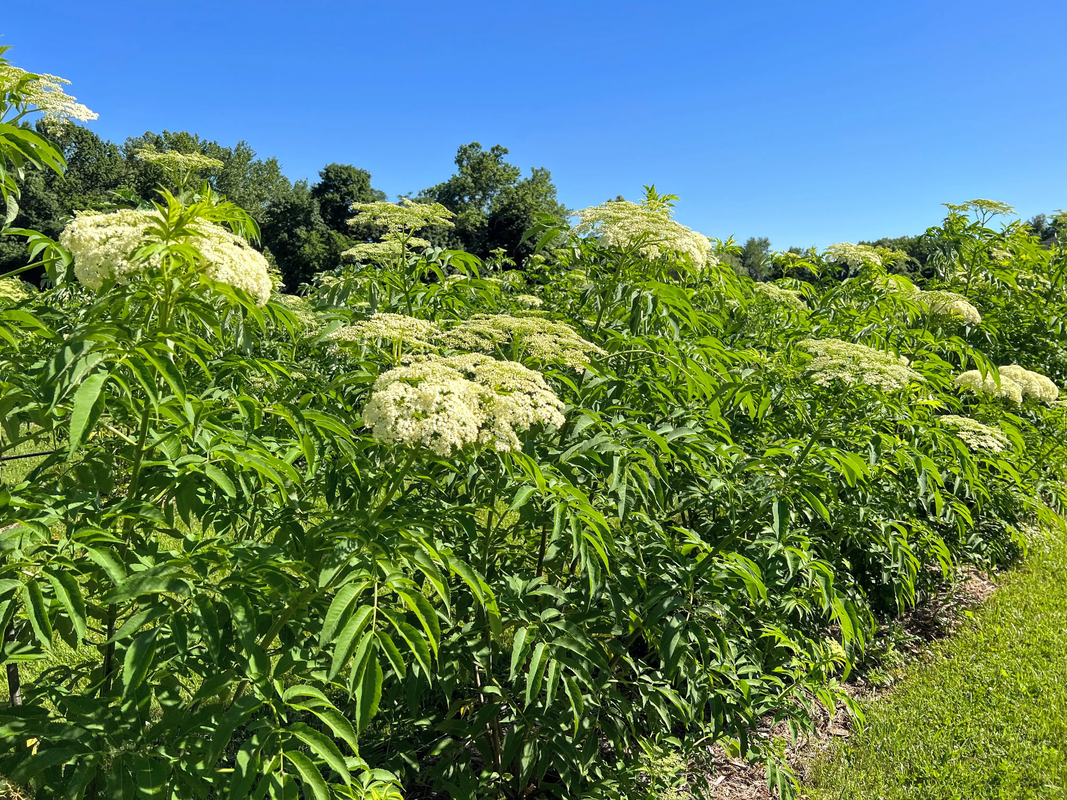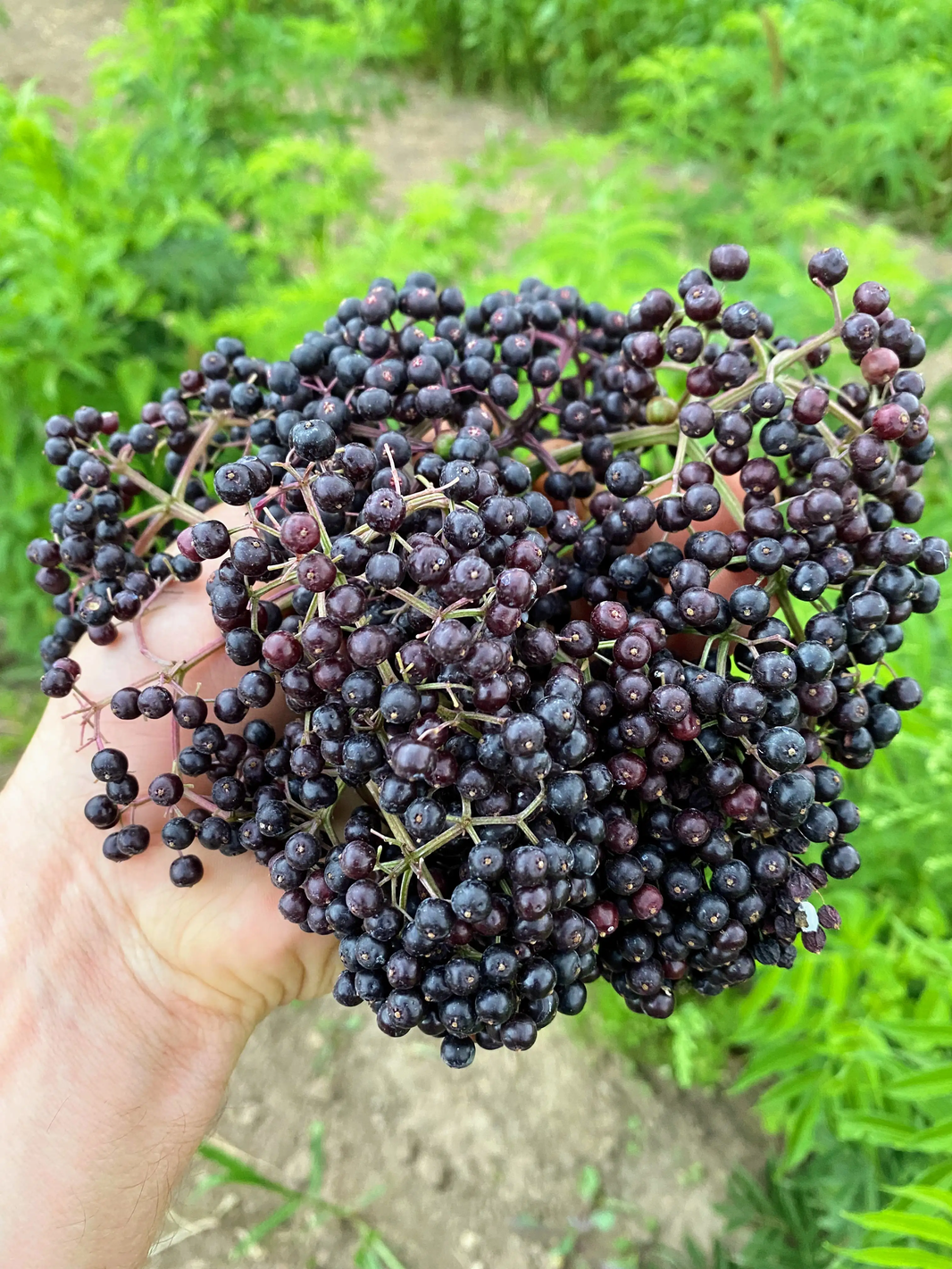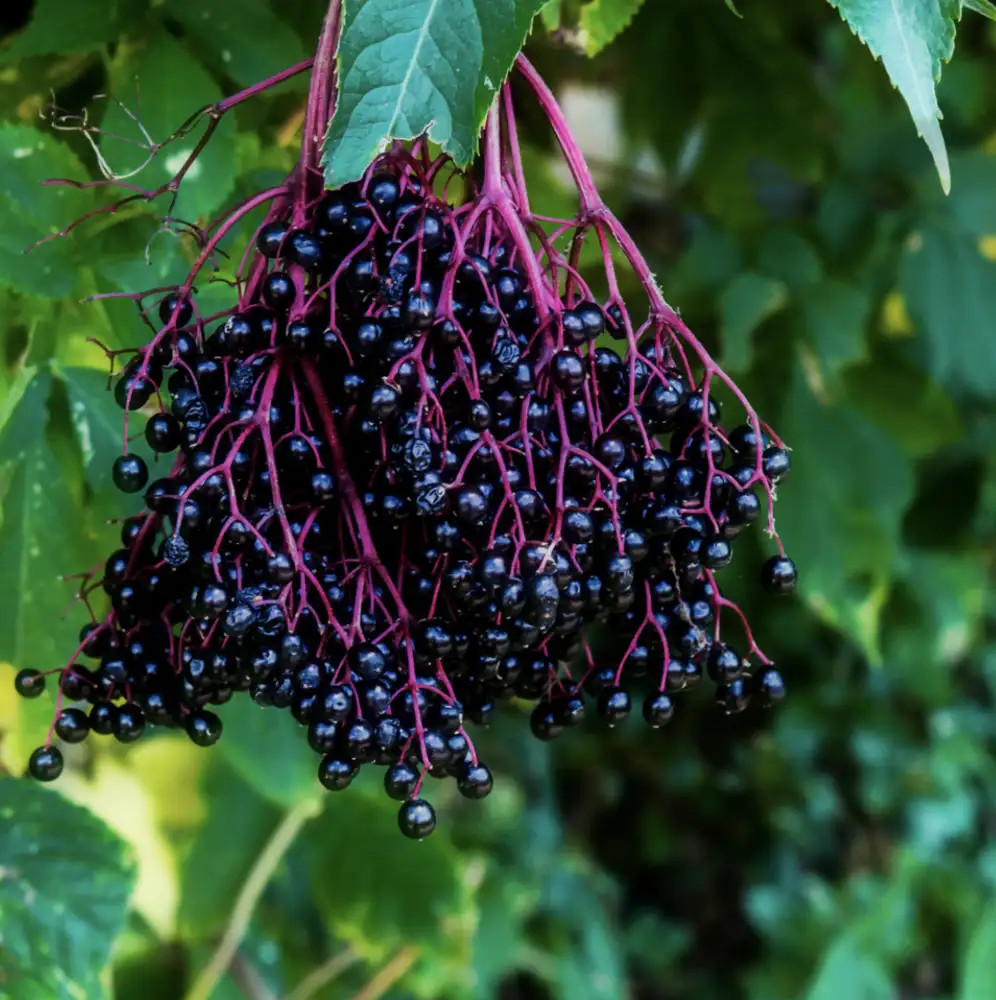What varieties are right for your farm?
Learn all about the different types.
American Elderberry (Sambucus canadensis)
The American Elderberry is a versatile deciduous shrub, growing in zones 3 to 8 across the US and Canada. A strong contender for difficult-to-grow areas like wetlands or ditches, it's also capable of forming robust hedges with its propensity for sending out new suckers each year. Hardier than most plants of similar stature, this hearty plant rarely exceeds 13 feet!
The flower clusters are larger, the bark lighter, and fruit tends to be sweeter. Recent studies on American Black Elderberry reveal that it may hold a higher concentration of anthocyanins and polyphenols than previously believed. These are substances known to contribute greatly to the plant's health benefits.
European Elderberry (Sambucus nigra)
With its ability to reach heights of up to thirty feet, the European Elder is an impressive deciduous shrub that has become a beloved part of hedgerows in Ireland and England. It will grow in the US, with flower clusters and fruit being smaller than the American counterpart.
Every part of Sambucus nigra - from its seeds to stems, leaves and roots - can be toxic if consumed by humans. Eating too much of the cyanide-inducing glycosides found in these parts may lead to an accumulation of cyanide in your body resulting in nausea, vomiting, diarrhea, or even coma! Fortunately, though, consuming cooked elderberries with their seeds is perfectly safe because cooking destroys any toxin present.
Currently, we offer American varieties only, but stay tuned!
Adams
This sweet varietal ripens early and is one of the tallest. As one of the oldest varietals hailing from New York, these tall plants produce luscious clusters of berries, dark in color and high yielding. Indeterminate
Bob Gordon
This new and unique varietal has inverted berry heads that help to protect them from avian threats. The yield of the Bob Gordon has proven to be close to triple that of other varieties! Research has indicated that this is a superior elderberry variety, especially for the Midwest regions. Determinate
Pocahontas
Fast growing and high yielding, this elderberry varietal packs a punch! Flower cymes and berry heads are larger than others, up to 24” across. Shorter growing seasons may result in berries that don’t fully ripen, as blooms occur later than other varieties. Indeterminate
Ranch
Harsh conditions and poorer soil are no problem for this aptly named varietal. The shorter, stocky shape offers a lower fruiting canopy, and berries are produced on single stems. Earliest Determinate
Wyldewood
With a potential of 12,000 lbs. per acre, this variety is an enthusiastic producer! Most stems occur with three umbels that are first to reach bud break of the majority of varieties, and ripen later in the season. Wyldewood is the first varietal to be released by the University of Missouri. Indeterminate
York
This varietal is tolerant of both dry and moist soil conditions and are hearty fruiting shrubs when established. They can even tolerate partial shade! This later ripening varietal requires consistent watering in the hottest months and will yield dark, soft, and plentiful purple berries.
American Elderberry




